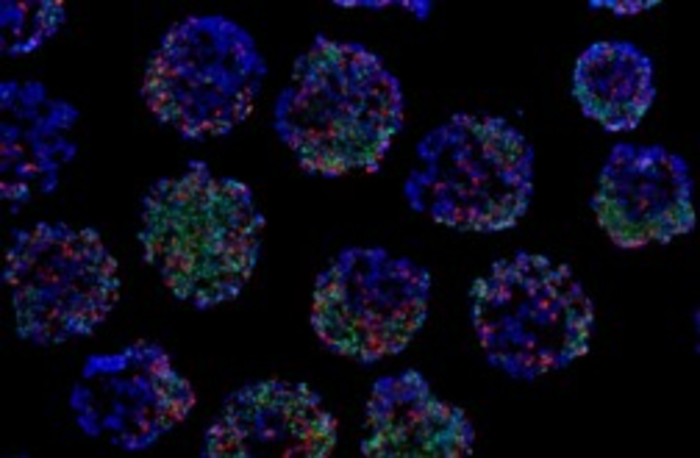Recent advances in the transplantation of stem cell-derived insulin-producing beta cells (SC-beta cells) to treat type 1 diabetes (T1D) has generated considerable interest and excitement. A major obstacle to the long-term survival and functioning of SC-beta cells is their vulnerability to stress or attacks from the immune system, which can ultimately lead to malfunction or death of the cells. A recent study published in the journal Stem Cell Reports has identified new ways to potentially enhance the SC-beta cell survivability through genetic manipulation of the cells.

Credit: Credit: Courtesy of The Foundry
Recent advances in the transplantation of stem cell-derived insulin-producing beta cells (SC-beta cells) to treat type 1 diabetes (T1D) has generated considerable interest and excitement. A major obstacle to the long-term survival and functioning of SC-beta cells is their vulnerability to stress or attacks from the immune system, which can ultimately lead to malfunction or death of the cells. A recent study published in the journal Stem Cell Reports has identified new ways to potentially enhance the SC-beta cell survivability through genetic manipulation of the cells.
Glucose (sugar) levels in the blood increase in response to food intake and are regulated by the hormone insulin, which is secreted by a special type of cell in the pancreas, the beta-cell. In response to glucose, beta-cells sense secrete insulin which in turn makes blood glucose levels go down. When beta-cells are destroyed or dysfunctional, blood glucose levels rise beyond normal levels, leading to diabetes. In patients with type 1 diabetes (T1D), beta cells are attacked and destroyed by the patient’s immune system. T1D patients depend on daily insulin injections, but it is difficult to regulate glucose levels and diabetics can experience episodes of excessively low or high blood glucose, leading to potential organ damage, shorten lifespan, and in some cases be acutely life threatening.
An alternative to repeated insulin injections is the transplantation of beta cells, obtained from deceased organ donors, or, more recently, derived from stem cells. Following transplantation, SC-beta cell survival and function critically depends on their resistance to the body’s immune response and/or a noxious milieu at the transplantation site. What’s more, stressed beta cells are thought to be even more susceptible to immune cell attack, so that preventing SC-beta cell stress may be critical in the context of T1D. Nayara Leite, Douglas Melton and colleagues from the Harvard Stem Cell Institute have looked for ways of increasing SC-beta cell stress resistance and survival. Using genetic tools, the researchers selectively reduced the amounts of four mediators of stress susceptibility and immune cell recognition in SC-beta cells. As a result, the engineered cells were more resistant to stress from inflammatory molecules or high glucose, and less susceptible to killing by immune cells, with an overall increased survival in lab-based experiments.
Future work is needed to address whether genetic modification of SC-beta cells can permanently protect transplanted cells from immune cell attack or other stressors, leading to improved survival and function, without negatively affecting their function or safety profile.
Journal
Stem Cell Reports
DOI
10.1016/j.stemcr.2022.01.018
Subject of Research
Not applicable
Article Title
Genetic manipulation of stress pathways can protect stem cell-derived islets from apoptosis in vitro
Article Publication Date
3-Mar-2022




